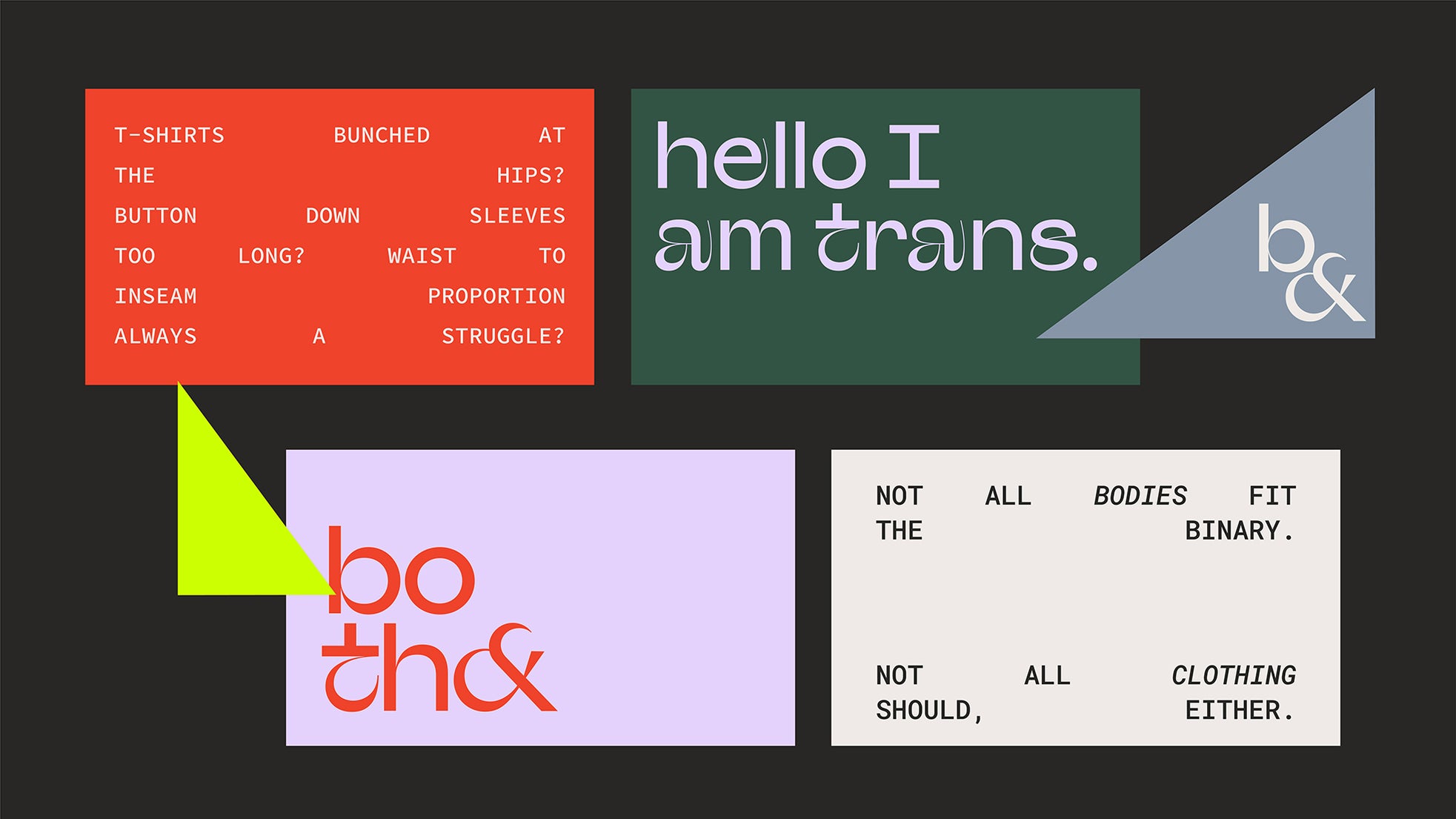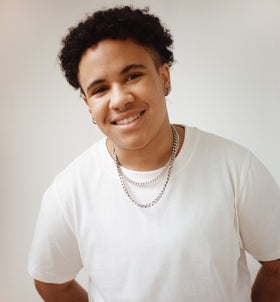
Dec 2, 2021
A Few Words on Language, Representation, and Learning
Finnegan Shepard
My pledge to the Both& community.
Two nights ago, my mother asked me whether I was afraid that Both& would receive hate mail or transphobic comments. I’d been working so hard inside a bubble of vision and excitement that I hadn’t even thought about it.
I didn’t sleep well that night. Not precisely because I’m afraid of the inevitable transphobia that will come our way, but because as soon as she said that, it hit me that what we’re creating is real. It’s going out into the world, and with that I feel an outsized responsibility to not only succeed in what we are trying to create, but to do so with the utmost grace.
Unfortunately, we live in a time where a company like Both& and founder like me (a trans man) can be endowed with far too much power as a representative of the ‘whole’. Historically, mainstream media has highlighted very particular narratives within the trans community while ignoring the rest, thereby contributing to a perception of ‘sameness’ about an incredibly diverse range of lived experiences. (If you want to learn more about this, I highly recommend CN Lester’s book Trans Like Me, among others).
To a certain extent, I think there’s an ethical imperative to grow into and own whatever visibility and voice is ‘granted’ to you as a trans person. If Both& succeeds, like it or not, I will be seen as a ‘representative’ of this community, and with that comes the responsibility to do the best I can representing a multiplicity rather than a singularity of experiences.
However, let the record state: every trans and nonbinary experience is different. I am not, and never could be, an accurate representation or voice for the Both& community at large. Not only that, but I am confident that I will make mistakes. Just the other day I was interviewing someone, and when I asked them what their preferred pronouns are, they replied, “I actually don’t like the word preferred.”
Despite being trans and spending an enormous amount of time thinking about gender, identity, and language, I had never considered that, though of course it made sense as soon as I heard it. To deem pronouns as ‘preferred’ implies they are optional. A preference is something that can be ignored or delegitimized.
A philosophy professor once told me that language is the material of the absent. You can make all sorts of differentiated noises to signal something that is present to others, but you can never express what is absent without language. This was the most mind-opening articulation of language that I had ever heard, and I thought about it a lot as I began my transition.
Absence can be what is in the past or future, what isn’t available to our senses, and what resides in our fantasies, plans, desires and fears. It also lives, I think, in misunderstanding. Misunderstanding is a kind of absence that requires language to rectify it. I will never forget what it felt like to hear the words he, him, his, sir, boyfriend, brother, son, or uncle applied to me for the first time. Language is important. It makes a difference.
But language and how it interfaces with identity is never static. It is always evolving, which means that to treat it with the respect it deserves is to always be open to learning. That means making mistakes. That means asking for clarification, and really listening.
Throughout my transition, and especially since I began building Both&, dozens of people have politely asked me whether they could ask me something about gender. My response is always the same: absolutely, but please don’t assume what I say is representative of other people’s experiences.
I am always vehement on this point, because I believe that no person is — or should be — defined by one aspect of their identity. Yes, I’m a trans man, but I am also any number of other things: white, a morning person, of Jewish descent, impatient by nature, obsessed with ancient Greek, not particularly good at staying in touch, raised with financial stability, diabetic, very fond of small, minimalist objects…the list goes on.
Framing a conversation as limited to subjective experience makes sense when it’s done in private. But it’s much trickier when you are creating something meant for the public eye, that is built off of trans and nonbinary folks’ experiences with clothing. Clothing isn’t a topical thing: it is deeply interwoven with our sense of self, how we signal identity, and our relationship to our bodies. Every time I have an interview with someone, I am staggered by the willingness of yet another person to share what is an incredibly vulnerable experience with a total stranger.
So to everyone in the Both& community (and anyone else who cares), this is my roundabout way of making a pledge to you. I can’t promise that I will always say the right thing, because I don’t always know what the right thing is. However, I promise to always listen, to always strive to learn, and to never pretend as though I could accurately represent all of our experiences.
My number one priority with Both& is for it to be a space that feels both safe and open to a continuing and ever-evolving dialogue. If I make a mistake, let me know. I’ll listen.
Love,
Finnegan and the Both& team



